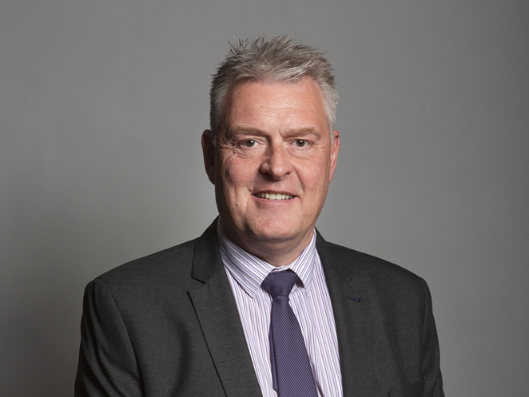
Conservative deputy chairman Lee Anderson has revealed he will be paid £100,000 a year for hosting a show on GB News.
The annual fee, declared in an update to the MPs’ register of interests published on Wednesday, is a significant increase on the £200 weekly payment he received for appearing as a regular on Dan Wootton’s 9pm weekday show.
[Update: GB News expands political coverage and invests in new Westminster studio]
Anderson’s fee alone will be more than GB News spent on MPs in total between October 2021 and September 2022. It paid Westminster politicians £82,040 during this period, previous earnings releases revealed, already making it the biggest media spender on MPs in the UK.
The controversial MP for Ashfield, in Nottinghamshire, became the fifth Tory MP to host a GB News show when his deal with the channel was announced on 7 March.
He joins fellow Conservatives Jacob Rees-Mogg, Esther McVey and Philip Davies, who all currently host shows. Bishop Auckland MP Dehenna Davison previously hosted a show but left last year when she was made a levelling up minister.
But Anderson’s £100,000 fee makes him the highest earning of that group so far, receiving almost double the £58,650 which McVey received in 2022. Her husband and co-host, Davies, received £46,203 in the same year.
Rees-Mogg, whose 8pm weekday show began in February, is yet to disclose how much he is being paid by the channel.
Announcing his decision to join the broadcaster, Anderson previously said: “GB News is the true voice of the great British silent majority. I’m joining the people’s channel to ensure their voice is heard.” His timeslot has not yet been announced.
The MP has proved controversial since his election in 2019, calling for the return of the death penalty and claiming people on Universal Credit were not in poverty.
Broadcast regulator Ofcom has this month addressed why Conservative MPs are allowed to present their own shows, and interview other Tory politicians, on GB News and at other outlets. McVey and Davies for example interviewed Chancellor Jeremy Hunt days before the Spring Budget.
Serving politicians “cannot be a newsreader, interviewer or reporter in any news programme”, Ofcom’s group director for broadcasting and online content Kevin Bakhurst said, but they are allowed to present current affairs shows which may be may be more long-form and contain “extensive discussion, analysis or interviews with guests”.
News programmes may be classified as news if they include features such as a newsreader presenting directly to the audience, a running order or list of stories, often in short packages, the use of reporters or correspondents to deliver packages or live reports, or a mixture of video and reporter items, he explained.
Email pged@pressgazette.co.uk to point out mistakes, provide story tips or send in a letter for publication on our "Letters Page" blog
